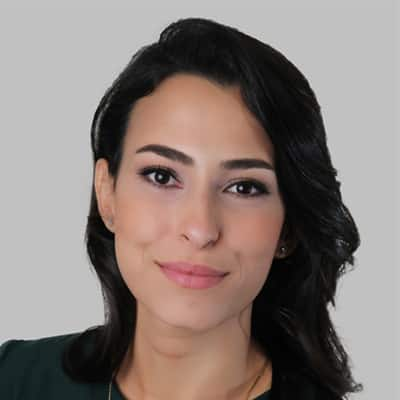Customer Logins
Obtain the data you need to make the most informed decisions by accessing our extensive portfolio of information, analytics, and expertise. Sign in to the product or service center of your choice.
Customer Logins
BLOG
Nov 04, 2019
Nile dam dispute
The Egyptian Minister of Foreign Affairs Sameh Shoukry and US Secretary of State Mike Pompeo met on 28 October to discuss the ongoing dispute over the USD4 billion-USD5 billion Grand Ethiopian Renaissance Dam (GERD) project, among other topics. This followed an escalation of hostile rhetoric from the Ethiopian and Egyptian governments over the dam during the prior weeks, which included hints at possible (but unspecified) military action. Egypt regards the dam as a potentially existential threat to water supply for its population, agriculture, and hydropower generation.
An Egyptian military strike against the GERD is highly unlikely. This is particularly due to the fear that such an attack would trigger cuts in US military aid, and also because of Egyptian President Abdel-Fattah al-Sisi's political desire to promote himself to Egypt's public as taking a 'moderate' and 'responsible' approach towards Ethiopia, in contrast with the more belligerent approach of his predecessor. On 5 October, the Egyptian Ministry of Irrigation released a statement calling for an international party to mediate the dam issue on behalf of the three concerned parties. Furthermore, IHS Markit assesses that any Egyptian airstrike against the dam would lack the capability to cause project-threatening damage to the overall structure, further limiting the likelihood of Egypt taking such an action.
Resumed talks over the GERD are probable, but a settlement to the dispute remains unlikely in the one-year outlook. Although construction of the dam may be up to 70% complete, the GERD is unlikely to be operational for 7-10 years. This makes a swift agreement unlikely, with the Ethiopian government using protracted delays to create 'facts on the ground' during negotiations. The most likely area for compromise currently is over the filling of the dam's reservoir; if Ethiopia were to agree to a five-year filling period, this would represent a success for Egypt, facilitating the latter in making concessions in other areas in subsequent discussions. Previously, talks between Egypt, Ethiopia, and Sudan over the dam achieved rare progress in May 2018, when the three countries agreed to establish an independent research group to assess the dam's impact on the flow of the Nile. However, later that year, Egypt presented a new proposal with far stricter demands, calling for the dam's reservoir to be filled over a 10-year period and for it to guarantee a flow of at least 40 billion cubic meters of water downstream annually, proposals that Ethiopia rejected outright. Egypt has repeatedly requested international mediation over the dispute - with Russia and the United States offering during October to mediate - but Ethiopia has historically rejected this. The administrations of Sisi and Ahmed have close relations with the US. On 24 October, an Egyptian presidential spokesperson announced that Egyptian President Abdel Fattah el-Sisi and Ethiopian Prime Minister Abiy Ahmed, meeting at the Russia-Africa Summit in Sochi, had agreed that the technical committee of the GERD would immediately resume work.
Sudan's leadership is unlikely to take a decisive stance in negotiations over the GERD, instead attempting to balance Egypt and Ethiopia's competing influence. Sudan's largely civilian government is unlikely to strongly side with either Egypt or Ethiopia, focusing rather on reinforcing diplomatic relations with both. This was indicated when Sudanese Prime Minister Abdalla Hamdok met with both countries' representatives shortly after his nomination in September, with talks on the GERD having topped the agenda of these meetings. Before former Sudanese president Omar al-Bashir's overthrow in April, Egypt was threatened by al-Bashir's engagement with Ethiopia, especially given stalled negotiations over the GERD. Since al-Bashir's ousting, Egypt has publicly supported the now-dissolved Sudanese Transitional Military Council (TMC), which took over power until the formation of a joint civilian-military transitional authority in September. Ethiopia played a key role in mediating between the TMC and Sudan's opposition coalition, which culminated in the signing of the power-sharing agreement.
Indicators of changing risk environment
Increasing risk
- Claims by Ethiopia that Egypt is sponsoring anti-government armed groups or protests in Ethiopia (as made by pre-Ahmed Ethiopian administrations) would indicate a decreasing likelihood of further talks over the GERD.
- Any prolonged periods of draught in Egypt would be likely to exacerbate existing depleted water reserves and increase the likelihood of protests from agricultural workers, increasing the (still low) probability of military escalation.
Decreasing risk
- Egypt, Ethiopia, and Sudan agreeing to US-mediated talks over the GERD dispute would indicate an increasing likelihood of an agreement within the one-year outlook.
- Ethiopia agreeing to a five-year filling period for the GERD would indicate an increased likelihood of other concessions from Egypt and further points of agreement.
- Egypt, Ethiopia, and Sudan establishing a shared drought management strategy would indicate increased likelihood of an agreement on the GERD.
{"items" : [
{"name":"share","enabled":true,"desc":"<strong>Share</strong>","mobdesc":"Share","options":[ {"name":"facebook","url":"https://www.facebook.com/sharer.php?u=http%3a%2f%2fstage.www.spglobal.com%2fmarketintelligence%2fen%2fmi%2fresearch-analysis%2fnile-dam-dispute.html","enabled":true},{"name":"twitter","url":"https://twitter.com/intent/tweet?url=http%3a%2f%2fstage.www.spglobal.com%2fmarketintelligence%2fen%2fmi%2fresearch-analysis%2fnile-dam-dispute.html&text=Nile+dam+dispute+%7c+S%26P+Global+","enabled":true},{"name":"linkedin","url":"https://www.linkedin.com/sharing/share-offsite/?url=http%3a%2f%2fstage.www.spglobal.com%2fmarketintelligence%2fen%2fmi%2fresearch-analysis%2fnile-dam-dispute.html","enabled":true},{"name":"email","url":"?subject=Nile dam dispute | S&P Global &body=http%3a%2f%2fstage.www.spglobal.com%2fmarketintelligence%2fen%2fmi%2fresearch-analysis%2fnile-dam-dispute.html","enabled":true},{"name":"whatsapp","url":"https://api.whatsapp.com/send?text=Nile+dam+dispute+%7c+S%26P+Global+ http%3a%2f%2fstage.www.spglobal.com%2fmarketintelligence%2fen%2fmi%2fresearch-analysis%2fnile-dam-dispute.html","enabled":true}]}, {"name":"rtt","enabled":true,"mobdesc":"Top"}
]}







